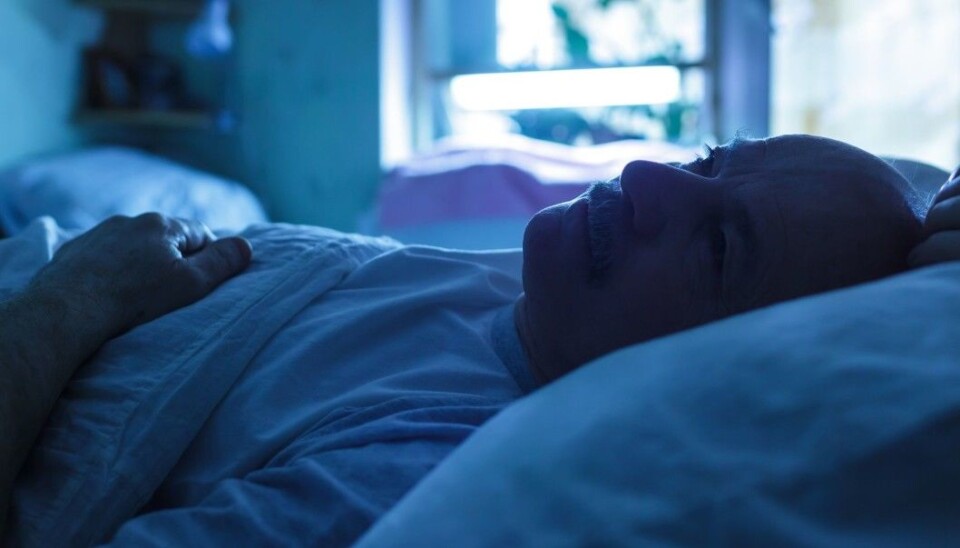
Internet therapy for sleep problems provides long-term improvement
An online treatment programme for insomnia works well, with its beneficial effects persisting as long as 18 months after treatment, a new study shows.
Insomnia is a growing problem in Norway and across the globe. A 2015 study of European countries showed a whopping 31 per cent of Poles 50 years and older reported sleep problems.
In Norway, a study from the University of Bergen has previously documented an increase in the incidence of insomnia in Norway from 11 per cent of the population in 2000 to 15 per cent in 2010.
Now a new study shows that online treatment offers hope to those who spend too much time tossing and turning in the hopes of a good night’s sleep. Those benefits lasted as long as 18 months after patients received help.
Great improvement in symptoms overall
Ninety-five patients were treated for their sleep problems for the study via a course they followed on the internet.
Immediately after treatment, about 60 per cent of the participants said they no longer had sleep problems, while between 70 and 80 per cent reported improvements in their sleep.
Now, a long-term follow-up of study participants shows that the beneficial effects of the treatment have persisted.
“Fifty-three per cent of those who completed the internet treatment did not have sleep problems 18 months after treatment, and 70-80 per cent had great improvement in their symptoms,” says psychologist Øystein Vedaa at the Norwegian University of Science and Technology, who was the main researcher behind the study.
Limits time in bed
The internet treatment consists of various modules that patients have to follow. It’s based on cognitive behavioural therapy, and contains components that address issues such as sleep hygiene and sleep restrictions.
In cognitive behavioral therapy, the therapist tries to change the patient's thought patterns so that they can change their behaviour. It is used for anxiety and phobias, among other things.
The first module examines the problems the patient actually has and asks the patient to answer sleep-related questions.
“It’s along the same lines as being questioned by a psychologist. The treatment is partly tailored to each individual. For example, patients keep a sleep diary, and there are limits set on how much time each person can spend in bed, based on how much time they sleep each night. This is what’s called sleep restriction,” Vedaa says.
Not everyone always sleeps well
Patients also get homework. For example, they are asked to challenge misconceptions they may have about sleep.
“Some believe that everyone else sleeps well every night, and that most people fall asleep as soon as they lie down. This is not the case, and correcting these kinds of misconceptions can result in less stress and make it easier to relax when the person lies down to go to sleep,” Vedaa said.
Many people also have overblown expectations on the importance of sleep, Vedaa thinks.
“That’s why the patients keep a diary of how they feel after good and bad nights of sleep. Very often this shows people that lots of other things affect how they feel during the day. Getting a more realistic picture of sleep reduces stress,” he says.
Good results
After the patients completed the internet treatment, they responded to a questionnaire about their sleep problems.
The questionnaire showed that 60 per cent of the patients in the treatment group no longer had a sleep problem after the internet course.
The patients reported getting significantly better sleep, improved mental health and that they were significantly less fatigued during the day.
Vedaa says this result compares favourably with face-to-face treatment by a psychologist, where 40-60 per cent of those treated no longer have insomnia after treatment.
The internet group was compared to a control group who also had sleep problems. The control group was given access to a website with good sleep advice.
“We compared how people’s sleep improved, and saw that participants who underwent internet treatment had a far greater effect than the control group when it came to better sleep and their work day. For example, we found that the internet treatment reduced symptoms of anxiety and depression, while there was no change in these symptoms in those who were only provided advice about sleep,” Vedaa says.
Twenty-eight per cent of the control group no longer had insomnia immediately after the treatment period.
The researchers are now developing a larger research project that will test the internet treatment on roughly 1700 patients with sleep problems.
----------






























